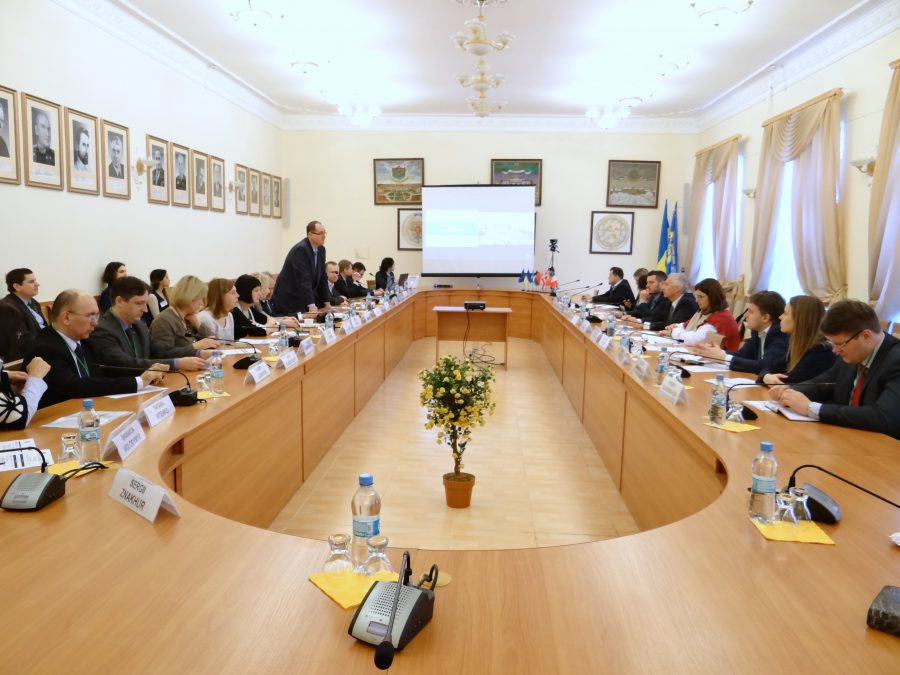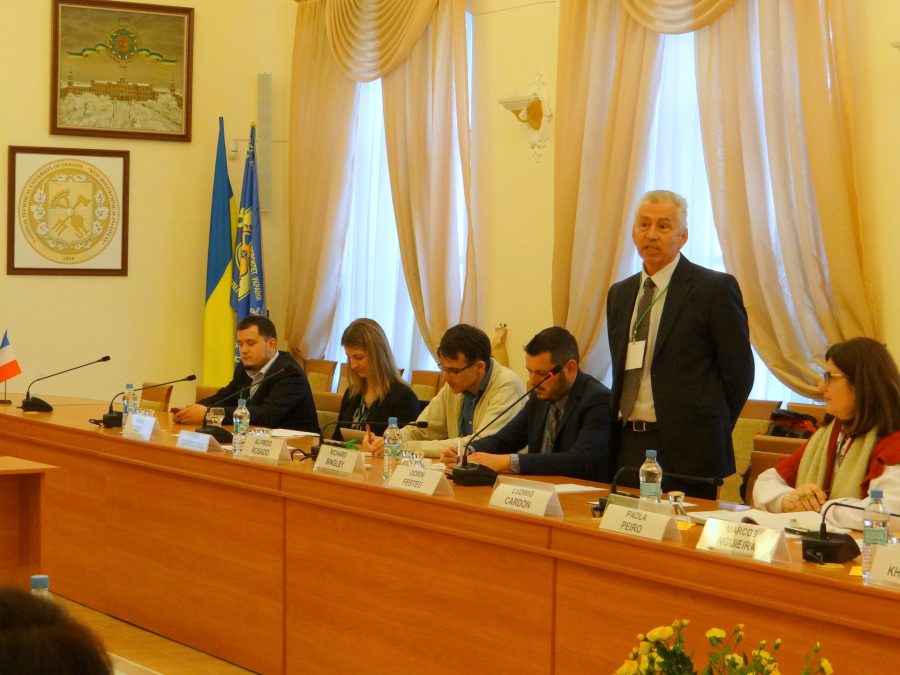
The first session in terms of the meeting of university-partners taking part in the project “The development of network infrastructure for the support of junior entrepreneurship on the FABLAB platform” upon the EU ERASMUS+ program took place on the 5th of April 2016.
Fablab (after English – fabrication laboratory) is the workshop offering the participants the opportunity to implement their ideas connected with digital prototyping and the rapid manufacturing with the help of modern equipment. Fablabs are equipped with the cross functional computerized equipment and recently primarily with 3D printers. Owing to the high cost of such technology, the creation of fablab is not cheap, especially for Ukrainian higher educational establishments. Thus, to make the process cheaper and put it into practice successfully, three Ukrainian four Belarusian and several universities from EU have formed a consortium under the European Union ERASMUS+ program.

FabLab partners group photo
IASA has organized the first meeting session in this three-year program where representatives from university of Great Britain, Portugal, France, Spain, Denmark and Belorussia visited KPI to meet other project participants from Ukrainian side – fellow workers form Kharkiv national university of economics named after Semen Kuzhets, Ternopil national technical university named after Ivan Puliui and surely Institute of applied system analysis of National technical university of Ukraine “Kyiv polytechnic institute”.
The participants discussed the issues of cooperation, equipment, capacity building, planned trainings and further steps in terms of the project intended for the next 3 years.
The main idea of the project is developing the environment and infrastructure for youth innovation entrepreneurship support in order to provide academia and business with feasible educational and research networking means, as well as the students and trainees with the platforms for professional training, startup development and pilot production. Created within the framework of the project creativity hubs – university fabrication laboratories (fablabs) will provide networking opportunities, serving as so-called “meeting points” for academia and business. Fablabs will solve the existing problem of insufficient engineering creativity and entrepreneurial motivation among young people due to their lack of knowledge, inadequate protection of intellectual property rights, absence of experience in developing “real-world” projects, unsustainable relationships with domestic and foreign investors and partners. University-business relations are mutually beneficial for both students and employers in EU & partner countries as it allows to enhance creativity and practical value of university graduates as well as to provide an influx of new ideas into innovation business in partner countries.

Project coordinator Dorin Festeu
From the other hand, universities should not only have resources for students training, but also specialized organizational units responsible for fostering engineering creativity and enhancing motivation for obtaining experience of implementation of projects with feasible results. Thus the project implies establishment of 5 Fablabs – 3 in Ukraine and 2 in Belarus. In Ukraine, 3 fablabs will be established in Kharkiv, Ternopil and Kiev.
The development of entrepreneurship in the innovation sector in partner countries is only possible if there is a practical-oriented training of students and engineering graduates on modern solutions in the field of management, modeling, manufacturing and marketing. Dynamics of changes in the information and technology areas requires new approaches to learning engineering programs at universities. These programmes should be flexible, business-oriented and aimed at the development of both engineering and business skills. A key problem is the lack of sufficient interaction mechanisms between enterprises and technical universities of Belarus, Ukraine and EU universities for the development and dissemination of training materials, eLearning, technology, research and experience. Solution of this problem may lie in creation of the Inter-University and partner network for training of young engineers on a single internet platform with the possibility of distance learning for students.
Development of startup movement and experience in developing start-up projects at BNTU, BSU, IASA KPI, KhNUE, TNTU showed the need for university own production facilities for modeling, prototyping and pilot production, which can be demonstrated to potential investors. The solution is to create an inter-university fablab network that can use facilities and resources of the universities, startup centers network, business partners and associates enterprises.
According to the meeting program, further work of consortium members will take place in France in September.




